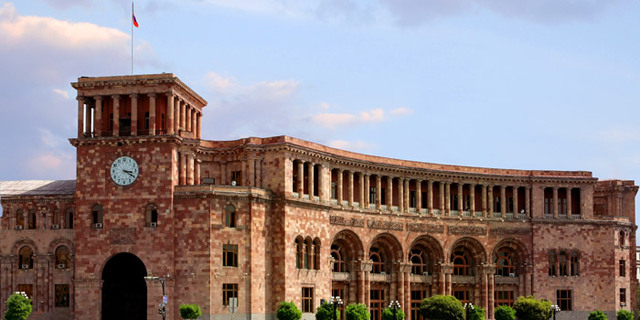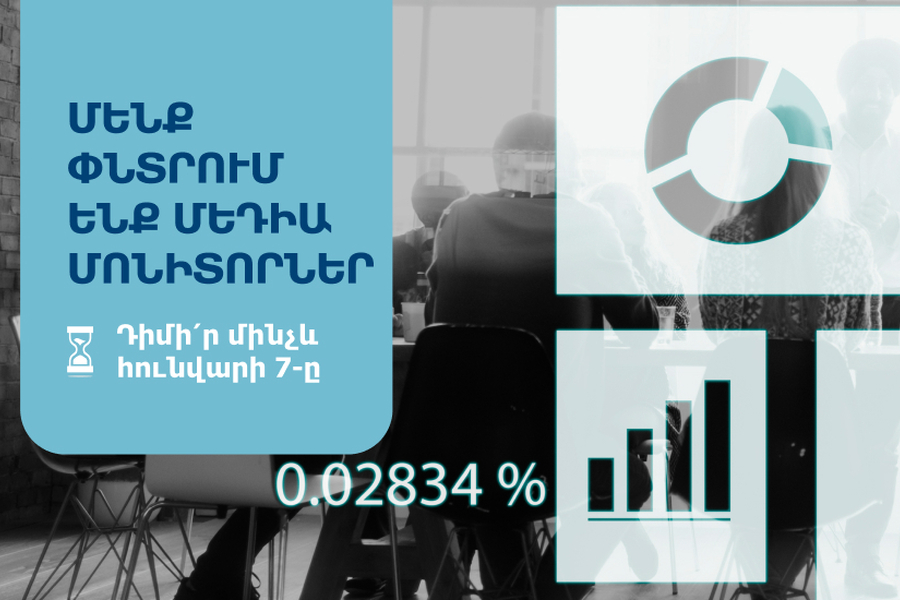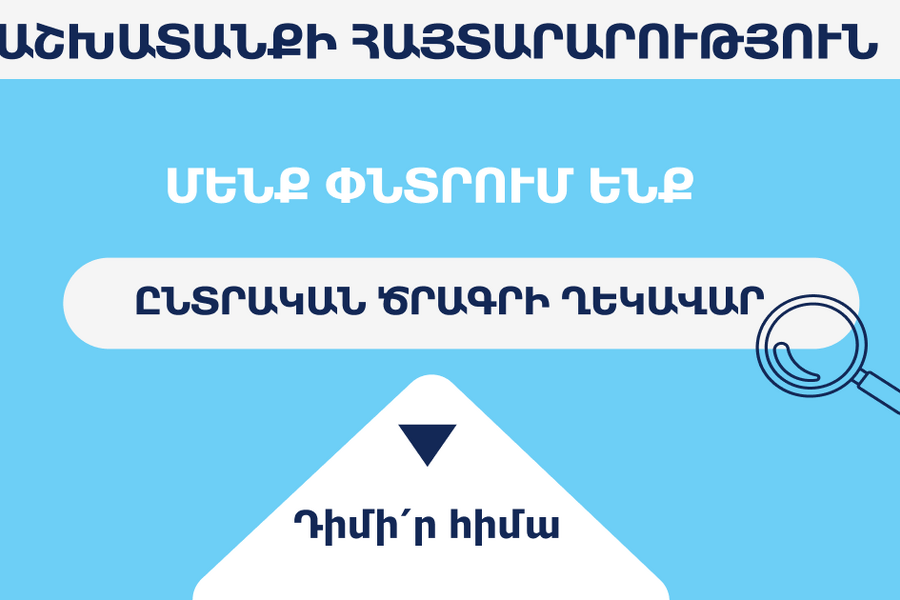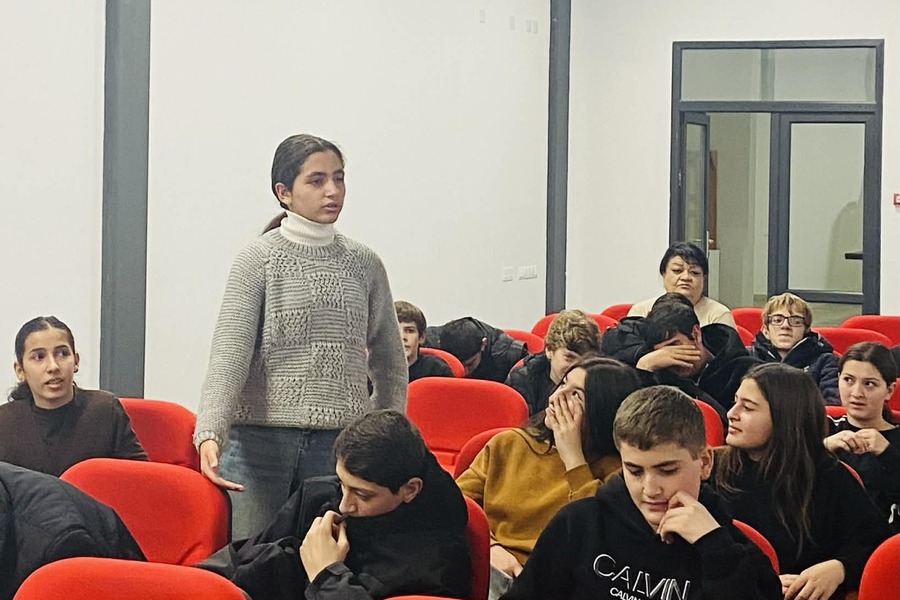Civil society recommendations to ensure effectiveness of fight against corruption
During government meeting on May 12, 2016 Prime Minister Hovik Abrahamyan came up with a statement expressing the government’s willingness and political will for more effective governance and fight against corruption.
Since the statements by the President of Armenia and the government have not led to any effective actions so far, and the adopted anticorruption strategies failed to produce any results, there is deep public mistrust in the sincere and real fight against corruption. Moreover, April war revealed the various effects of corruption and showed vulnerability of national security and endangered right to life.
Urgent, precise and crucial solutions should be applied to adequately meet national security challenges and to gain public trust in the anticorruption initiative. It is evident that we face a critical situation and there is no resource and time to delay.
Corruption in Armenian is endemic and systemic, permeating all the spheres of public life that need to be addressed separately and in detail. Nevertheless, there are some common issues, and the measures to settle them may essentially promote simultaneous reduction of corruption risks in various spheres. Therefore in such a critical situation it is logical to start fight against corruption with those issues.
In this regard, we think that in the upcoming month the government of Armenia should
1. Eliminate risks in conflict of interest of public servants by legislation by means of elaborating a Law on Conflict of Interest, which should at least
- determine conflict of interest as a situation incompatible with public service, banning to take any actions or make decisions in conflict of interest situation, as well as stipulate clear mechanisms for regulation and management of conflict of interest;
- generalize the norms that prevent, restrict and regulate conflict of interest for the officials at public functions in all levels of state and local self-government bodies, as well as for all the top officials of state funded and/or community budget funded organizations;
- reserve control and coordination over conflict of interest and norms of ethics to a united and independent body (for instance integrity/ethics commission) that will examine the complaints regarding violations of conflict of interest and norms of ethics, will be authorized to submit them to liability, and will have an obligation to report on crime should there be sufficient ground for it.
2. Extend the content of asset and income declarations and the framework of subjects, which particularly need to
- ensure introducing the institute of declaration of interests, and the requirement for submission of asset and income declarations to extend to the high ranking officials’ parents, underage and adult children, regardless of the fact of their being married and living together;
- declare and publish the companies of high ranking officials and the people related to them, which are registered abroad, and the incomes received from them, as well as their entire assets and funds regardless of the price threshold;
- publish the names of the people who pay income or make donations (natural or legal persons), kinship or other relations of those who make donations, the place (country, place of residence) where their real estate is;
- make the heads of communities and their deputies that have 30 000 and more population be liable to submit asset and income declarations;
- authorize the integrity/ethics commissions to publish the asset and income declarations, check their validity and investigate them, examine all related complaints, authorize to subject to administrative liability, and, assume obligation to report on crime, should there be sufficient grounds.
3. Enhance the effectiveness, transparency and accountability of the use of public resources, including measures to
- ban by legislation the companies of high ranking officials and the people related to them from participating in public procurement, public bargaining, auctions, and contracts for use of public resources;
- define a requirement for publication of the names of real owners (beneficiary owners) of the companies, including mass media that participate in public procurement, public bargaining, auctions, and contracts for use of public resources;
- define the procedure of purchasing things outside the territory of the Republic of Armenia, stipulated by the Law on Public Procurement to ensure procurement for a large number of consumer goods (for instance, fuel, food products) by state office from commodity exchange and/or exhibitions to reduce the volume of mediated procurement;
- create a common portal for procurement in Eurasian Economic Union according to procurement classification by providing public access to the prices of goods and information to the winners to ensure the effectiveness of state budget expenses;
- clarify by legislation the criteria for granting tax privilege in order to avoid arbitrary and doubtful decisions;
- criminalize illicit enrichment.
It is obvious that fighting corruption cannot be effective in an atmosphere of widespread impunity. It is imperative for the political authority to take active steps for competent state bodies and especially law enforcement bodies to fully implement their legislative authorities. It is expected that they should, in particular, follow publications of journalistic investigation, and initiate proceedings on their own initiative without the application of the third person and prepare materials on cases of violations of codes of ethics, conflict of interest and illicit enrichment, and against the people having suspicious sources of asset and income and involved in anti-competitive actions.
For the fight against corruption to be real the most important factor is gaining public trust in the body that coordinated the fight against corruption – Anticorruption Council. In that regard there is a need to review the composition of the council, by adding people who are well known to public for their legitimate tenure and unimpeachable behavior.
Ensuring presentation of critical opinions, and publicity by public television may become a proof of manifestation of real political will in fighting corruption, without which it is impossible to ensure transparency of state bodies’ activities and public accounting.
It should be reminded that the formation of legitimate authorities through free and fair elections is a certain a guarantee of success for the anticorruption initiative in any state. Given that it is possible to hold legitimate elections only through active public oversight mechanisms, it is of special importance that electoral legislation meet the requirements of the participants in electoral processes. Therefore, urgent amendment to the Electoral Code upon public request may be viewed as a main indicator of the declared fight against corruption and manifestation of respective political will, at least by ensuring a requirement to provide public access to signed voter lists and by restoring and, following the advice of international organizations, by increasing the rights of public overseers, and mass media representatives.
“Transparency International Anticorruption Center” NGO
“Open Society Foundations – Armenia”
"Rule of Right" NGO
“Helsinki Committee of Armenia” NGO
“Journalists’ Club ‘Asparez’” NGO
“Helsinki Citizens’ Assembly Vanadzor Office” NGO
Civil society recommendations for effective fight against corruption








